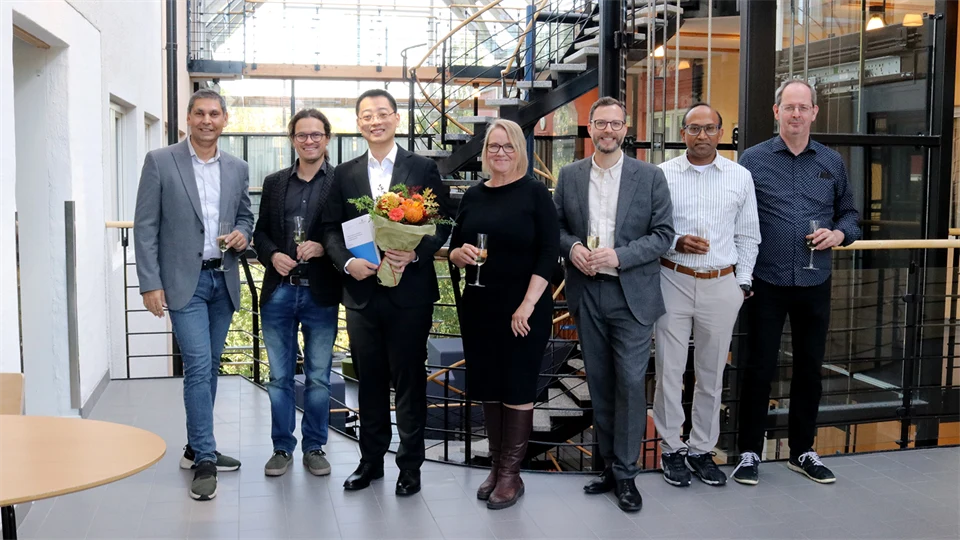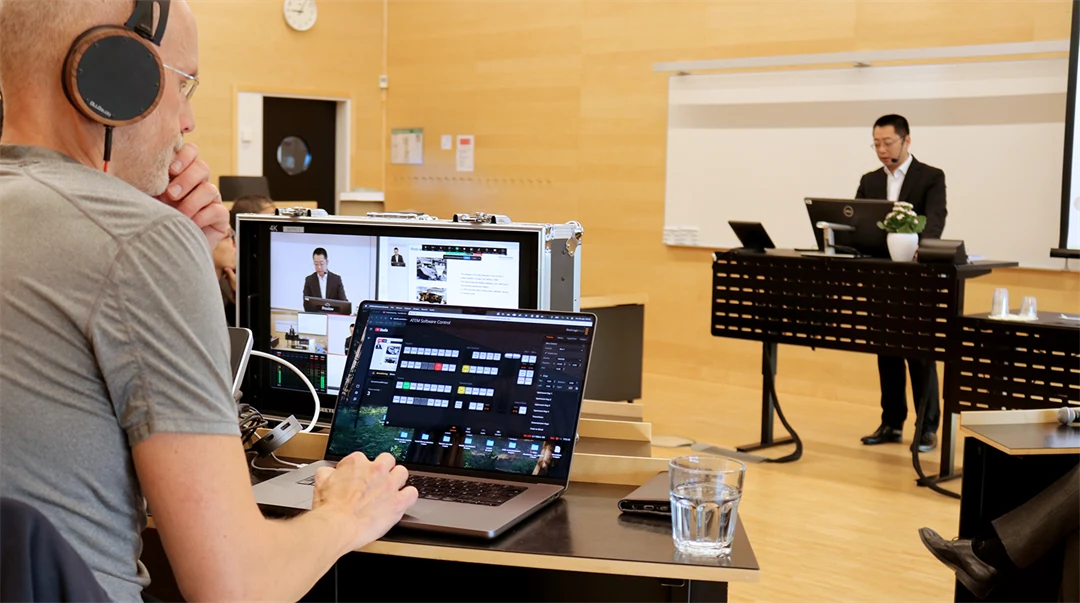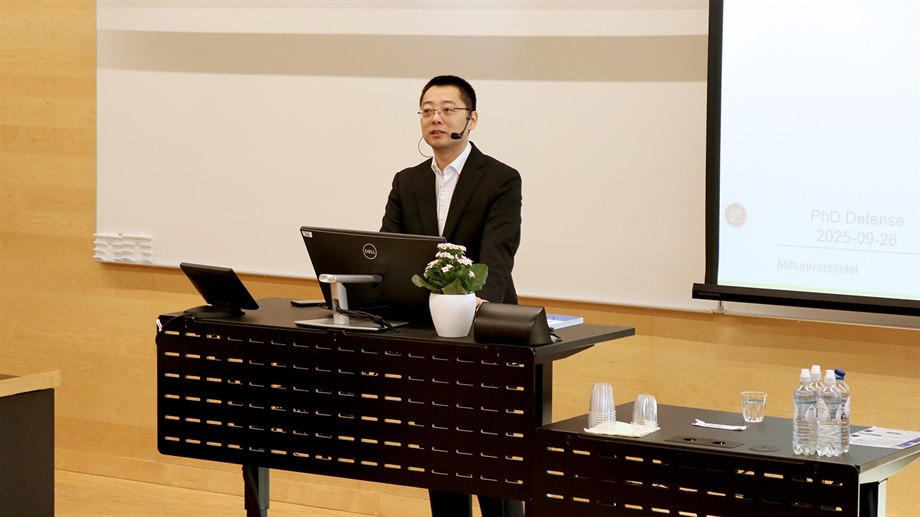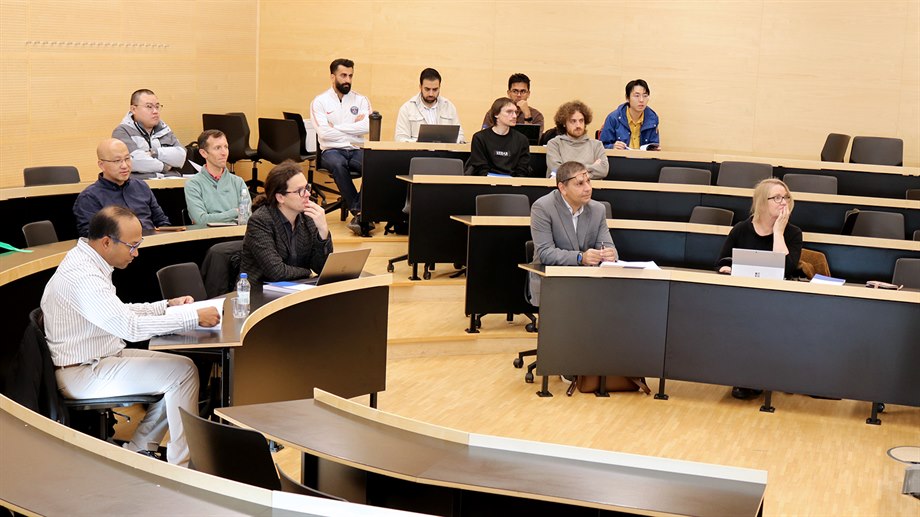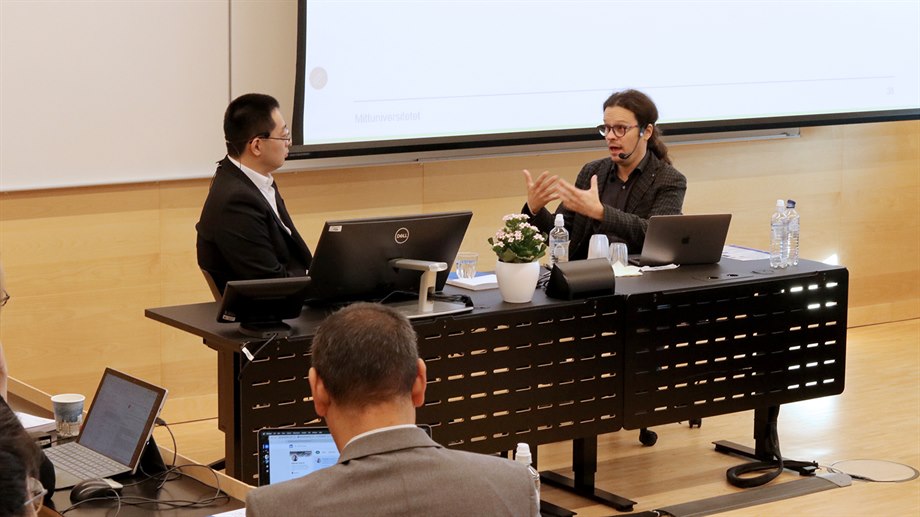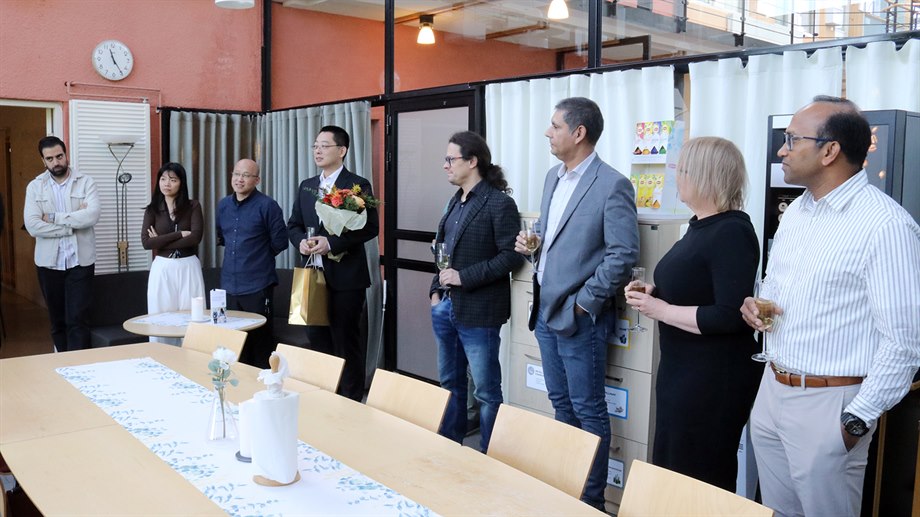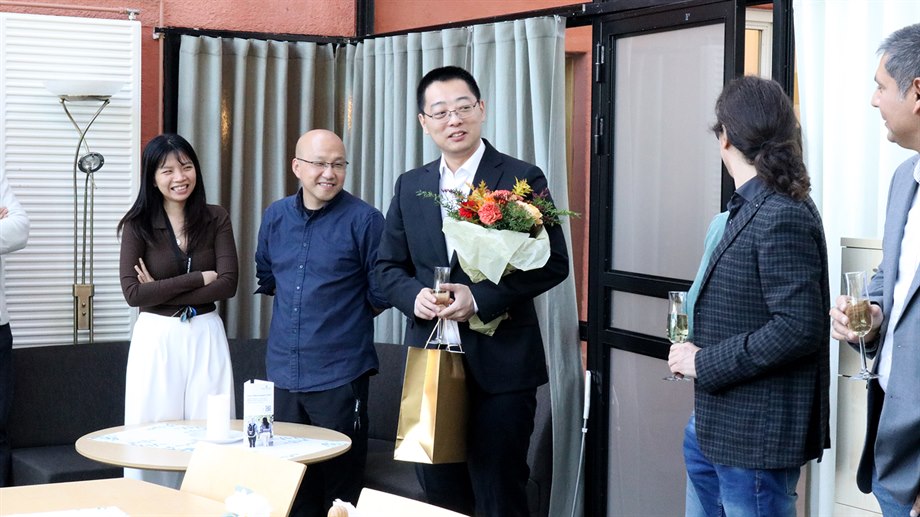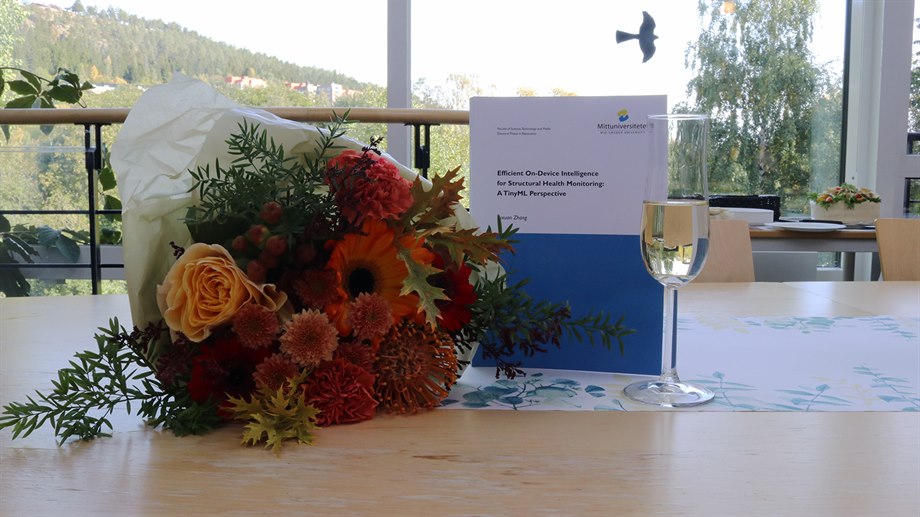av
Yuxuan new doctor in electronics
Today Yuxuan Zhang successfully presented his doctoral thesis on how small and energy-efficient AI systems can be used to detect damage in buildings and infrastructure at an early stage – before serious problems arise.
Traditionally, monitoring vital societal structures, such as concrete bridges and large buildings, requires large amounts of data and advanced computers. But Yuxuan Zhang’s research shows that intelligence can be moved closer to the sensors themselves, through the use of Tiny Machine Learning – small, low-power computers capable of advanced analysis in real time.
- This could open up entirely new ways of monitoring critical infrastructure. With smart sensors that are both energy-efficient and accurate, we can create systems that are cheaper, more sustainable, and capable of real-time operation, says Yuxuan Zhang, newly awarded Doctor of Electronics at Mid Sweden University.
The public defense took place at Campus Sundsvall. The supervisor and chair of the defense was Associate Professor Sebastian Bader from Mid Sweden University, with Professor Bengt Oelmann, also from Mid Sweden University, as co-supervisor. The opponent and external reviewer was Docent Alessandro Pozzebon from the University of Padova, Italy. The examining committee consisted of Carol Ann Featherston from Cardiff University in the United Kingdom, Rishad Shafik from Newcastle University in the United Kingdom, and Salman Toor from Uppsala University in Sweden.
